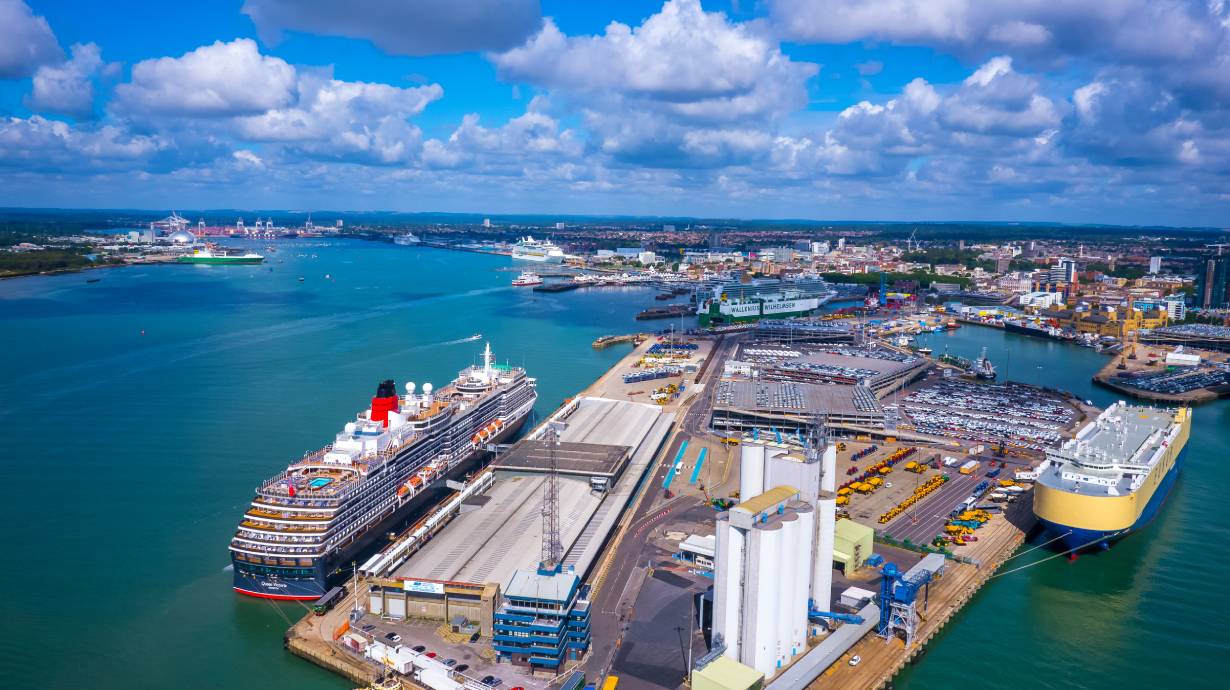Verizon builds first European private 5G network at Port of Southampton
Private 5G network to transform connectivity

Verizon Business is building its first private 5G network in Europe at the Port of Southampton, providing more reliable communications across the site and paving the way for entirely new applications to be deployed.
Although 5G will result in more advanced consumer mobile data services, most operators consider the technology’s real potential to be in the business market. A private 5G network is one that provides dedicated access to a specific customer, using either licensed, unlicensed or shared spectrum, with no resources shared by any third party.
By pursuing this route, customers can define the scale, pace of rollout, and technology used, while guaranteeing a certain level of performance for their applications.
- These are the best business SIM-only deals around today
- And the best business broadband deals
- Here are the best business mobile phone deals
5G business
The Port of Southampton is the one of the biggest in the UK, facilitating £40 billion in exports every year and playing a critical role in British supply chains. It is also a major port for cars and cruise passengers.
Verizon and Nokia’s private 5G network will provide high throughput, low latency and ultra-secure connectivity, allowing the port’s data communications to be consolidated onto a single network.
Smart ports and logistics have emerged as two of the most high-profile early use cases for private 5G networks, and the hope is that the technology will not only improve current connectivity, but also enable entirely new applications in the fields of Internet of Things (IoT), real-time analytics and Machine Learning.
These include asset tracking, autonomous vehicles, workflow management, predictive maintenance, and safety monitoring.
Sign up to the TechRadar Pro newsletter to get all the top news, opinion, features and guidance your business needs to succeed!
“Building flexible and resilient technology platforms to meet our customers’ needs is a key element of our strategy, and becoming the first mainland port operator in the UK to offer a private 5G network to our customers is a fantastic milestone,” said Henrik L. Pederson, CEO of Associated British Ports (ABP), which runs the Port of Southampton.
“We would like to thank our partners for enabling this project, which will equip our Port in Southampton with the state-of-the-art infrastructure needed to be at the forefront of the digital revolution in the maritime industry.”
Although it’s possible for businesses to source their own networking equipment, it is thought most will seek help from a network partner. This means private 5G will be a lucrative source of revenue for domestic and multinational operators.
Demand for private cellular networking equipment (both 4G and 5G) to support mission critical applications will see the market reach $5.7 billion by 2024, according to a new study by IDC.
“Verizon’s private 5G is the foundation for a completely dedicated edge compute infrastructure, enabling ultra-low latency at the premise, higher levels of security and deeper customization for our partners,” said Tami Erwin, CEO, Verizon Business.
“Businesses such as ABP, are coming under more pressure to evolve their services at tremendous speeds in order to take advantage of new commercial opportunities. Along with Nokia, we have been able to equip ABP to take advantage of the immediate benefits private 5G offers, and most importantly prepare the Port of Southampton to take full advantage of new technology applications and real-time analytics which will digitally transform its services in the future.”
- Here are the best mobile phone deals
Steve McCaskill is TechRadar Pro's resident mobile industry expert, covering all aspects of the UK and global news, from operators to service providers and everything in between. He is a former editor of Silicon UK and journalist with over a decade's experience in the technology industry, writing about technology, in particular, telecoms, mobile and sports tech, sports, video games and media.